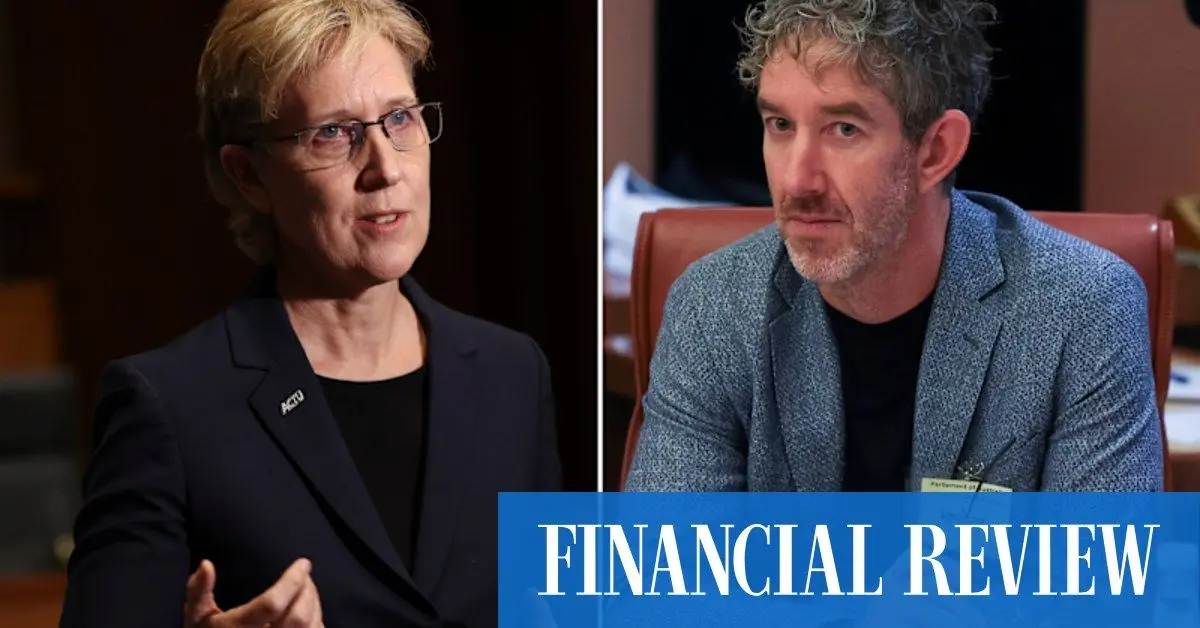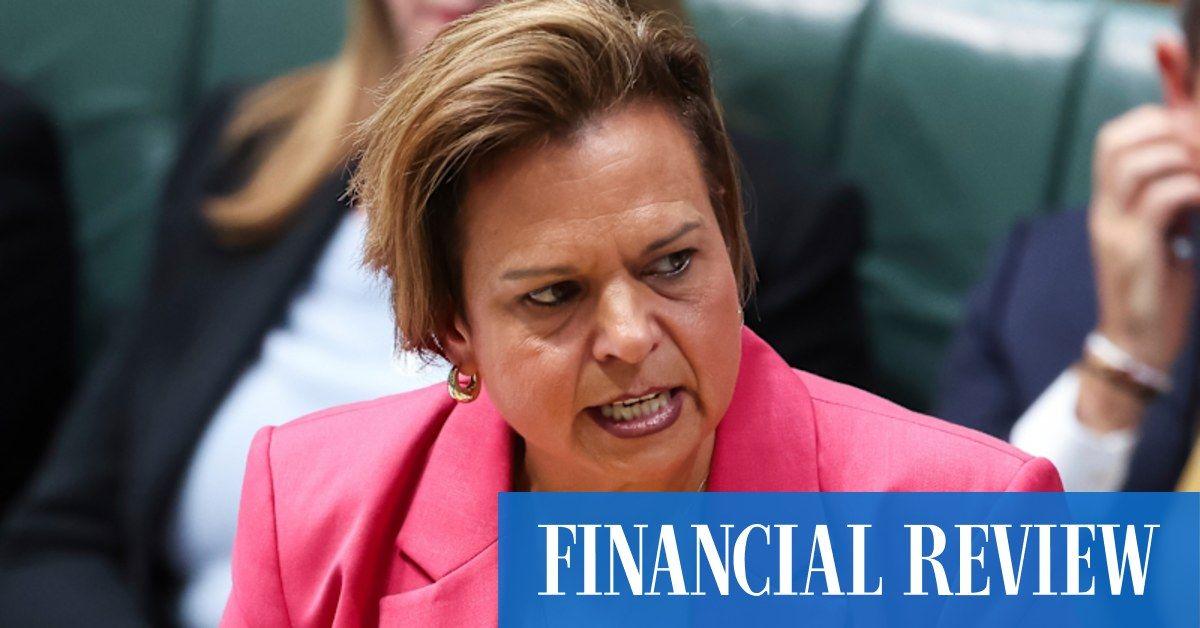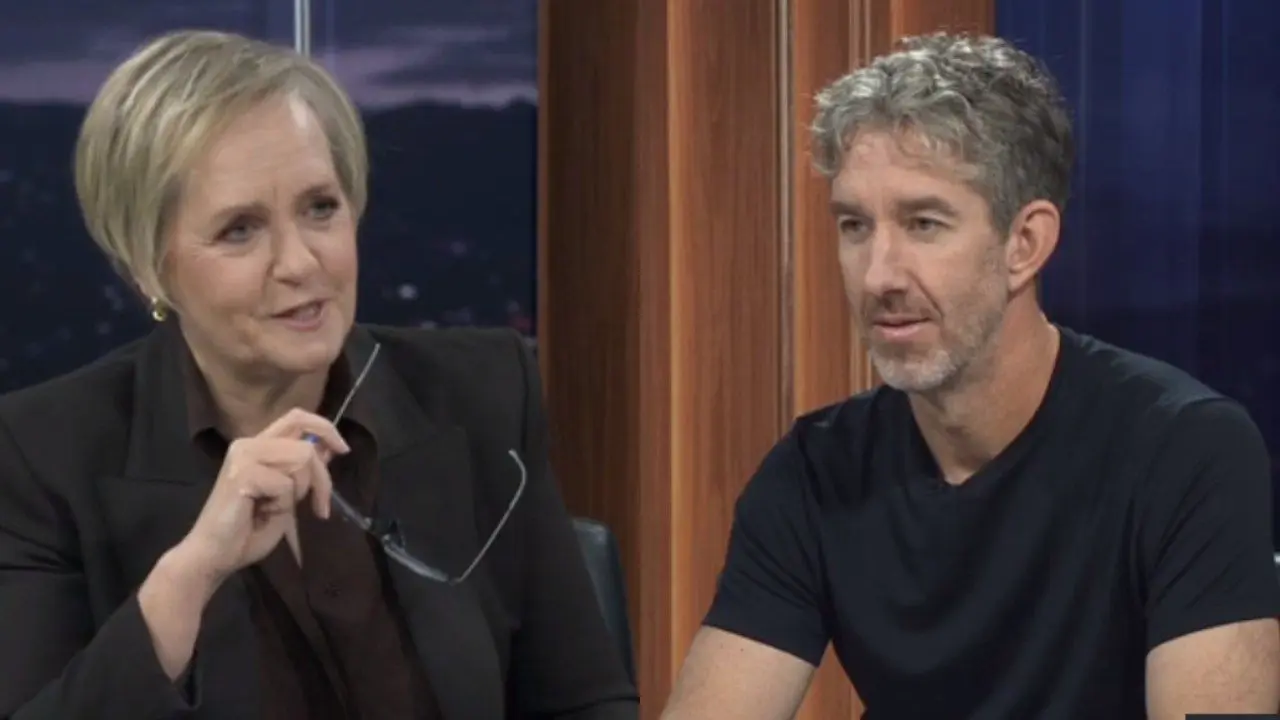ACTU's AI Content Payment Agreement Claim Sparks Debate in Australian Creative Industry
2 Sources
2 Sources
[1]
ACTU claims of agreement with tech firms over training AI dismissed by creative peak bodies
CEO of Australian Recording Industry Association says tech companies should simply comply with existing copyright law The Australian Council of Trade Unions claims that it has reached a "breakthrough" agreement with the tech sector on a model for payment for using creative content in training AI has triggered alarm among bodies representing creative professionals. Speaking on the sidelines of the economic reform roundtable, the secretary of the ACTU, Sally McManus, said "there was discussion with the Tech Council and ACTU about wanting to address the issue of paying creatives, journalists and academics for their data (and) their creative work that they do". "That's quite a significant shift, and it's one we really welcome." McManus said tech companies were already "rushing ahead" in their exploitation of content to train large language models. "They'll be crawling all your data. And people whose livelihoods depend on their creative output deserve not to have that stolen from them," she said. "And so we're committed to doing everything we can to address that. It was, I think, a big thing for the Tech Council to step up and say, 'This is something we're prepared to work on with you'." But the CEO of the Tech Council, Damian Kassagbi, played down the significance of the roundtable discussions. "We are hopeful we can find a path forward on copyright that allows AI training to take place in Australia while also including appropriate protections for creators that make a living from their work," Kassagbi said in a statement. "What that path looks like has not been determined or agreed." Industry groups representing the creative professions are opposed to watering down existing rules governing the fair use of original content. The CEO of the Australian Recording Industry Association, Annabelle Heard, said any talk of an "agreement" was misplaced as tech companies should simply comply with existing copyright law. Heard rejected any suggestion that AI firms should be given an exception to fair use rules to allow them to mine original Australian content to train their large language models - a prospect raised in a recent Productivity Commission report. "Without knowing the details of what they have discussed, it's unclear this is going to end up in a better situation for copyright owners. Certainly, we are interested in how you can come to an agreement without copyright holders at the table," she said. In a joint statement, the Australian Society of Authors and the Copyright Agency said "responsible AI development must operate within the boundaries of copyright law". "Innovation should be supported through licensed access - not through the unauthorised access of copyright content for the training of large language models." A News Corp Australia spokesperson said the copyright act was "a strong framework that requires no change".
[2]
Big tech and unions' 'breakthrough' on paying for AI content
Gift 5 articles to anyone you choose each month when you subscribe. Unions say technology companies have agreed to develop a model to pay for copyrighted material used in artificial intelligence in a major shift reached at the Albanese government's productivity roundtable. ACTU secretary Sally McManus said the Tech Council of Australia, whose chairman Scott Farquhar spoke in the AI talks on Wednesday and previously wanted to relax copyright laws, had opened a dialogue with union leaders on how AI could pay media and creatives for content.
Share
Share
Copy Link
The Australian Council of Trade Unions' claim of a breakthrough agreement with tech firms on AI content payment is met with skepticism from creative industry bodies, highlighting tensions in the evolving landscape of AI and copyright.
ACTU's Claim of Agreement with Tech Firms
The Australian Council of Trade Unions (ACTU) has stirred controversy in the creative industry by claiming a "breakthrough" agreement with the tech sector regarding payment for creative content used in training AI models. ACTU secretary Sally McManus stated that discussions with the Tech Council of Australia addressed the issue of compensating creatives, journalists, and academics for their work used in AI training
1
.
Source: Financial Review
McManus emphasized the significance of this shift, highlighting the need to protect the livelihoods of those dependent on creative output. She expressed concern over tech companies "rushing ahead" in exploiting content for large language models, stating, "They'll be crawling all your data. And people whose livelihoods depend on their creative output deserve not to have that stolen from them"
1
.Tech Council's Response and Industry Skepticism
However, the Tech Council of Australia's CEO, Damian Kassagbi, downplayed the significance of the roundtable discussions. While acknowledging the hope for a path forward on copyright that allows AI training in Australia with appropriate protections for creators, Kassagbi clarified that no specific agreement had been reached
1
.This claim of an agreement has been met with skepticism and concern from various creative industry bodies. Annabelle Heard, CEO of the Australian Recording Industry Association, dismissed the notion of an "agreement," asserting that tech companies should simply comply with existing copyright law
1
.Copyright Protection and AI Development
The debate highlights the tension between AI development and copyright protection. Industry groups representing creative professions oppose any weakening of existing fair use rules. The Australian Society of Authors and the Copyright Agency jointly stated that "responsible AI development must operate within the boundaries of copyright law"
1
.This stance is echoed by News Corp Australia, which emphasized that the current copyright act provides a strong framework requiring no changes
1
.Related Stories
The Broader Context of AI and Copyright
The discussions took place against the backdrop of the Albanese government's productivity roundtable, where AI was a key topic. The Tech Council of Australia, whose chairman Scott Farquhar participated in the AI talks, had previously advocated for relaxing copyright laws
2
.This debate reflects the broader global conversation about balancing AI innovation with protecting intellectual property rights. As AI technologies continue to advance, the need for clear guidelines and fair compensation models for content creators becomes increasingly urgent.
References
Summarized by
Navi
[1]
[2]
Related Stories
Australia Rejects Copyright Exemption for AI Training, Prioritizing Creative Industries
26 Oct 2025•Policy and Regulation

Australia Debates AI Copyright Exemptions: Balancing Innovation and Creative Rights
06 Aug 2025•Policy and Regulation

Atlassian Co-Founder Scott Farquhar Sparks Controversy Over AI Copyright Exemptions in Australia
14 Aug 2025•Policy and Regulation

Recent Highlights
1
ByteDance Faces Hollywood Backlash After Seedance 2.0 Creates Unauthorized Celebrity Deepfakes
Technology

2
Microsoft AI chief predicts artificial intelligence will automate most white-collar jobs in 18 months
Business and Economy

3
Google reports state-sponsored hackers exploit Gemini AI across all stages of cyberattacks
Technology





